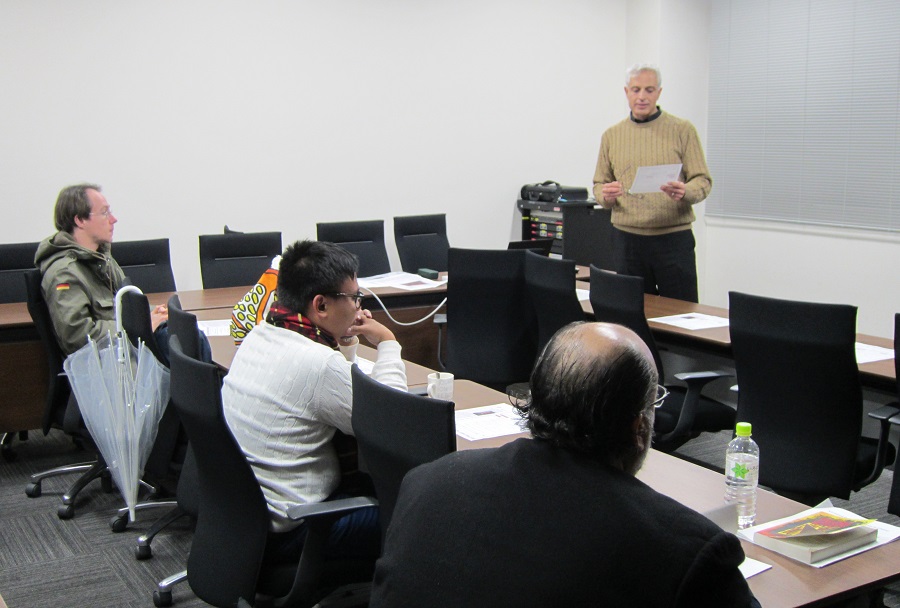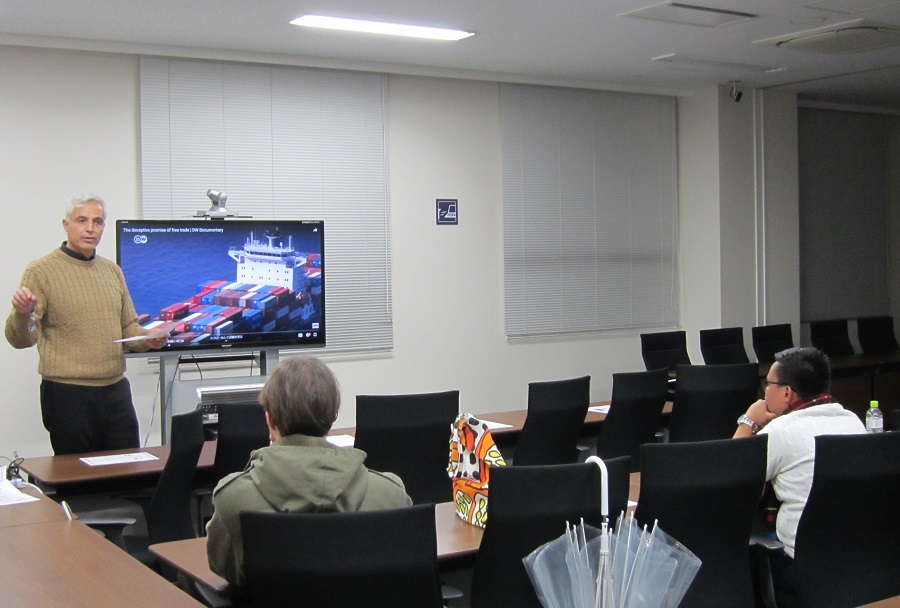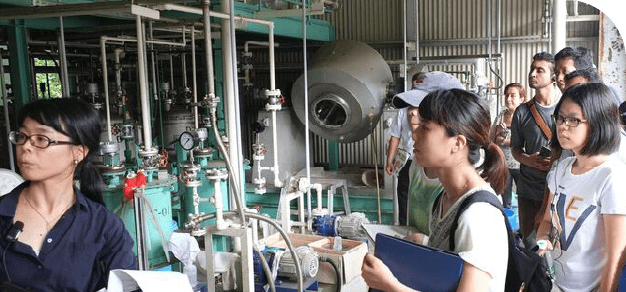Recent Activities
GRM Monthly Documentary Film Event - December
2018/12/27
A documentary film event was held on Thursday, 6 December 2018.
We watched a film, titled
“The Deceptive Promise of Free Trade”
----------------------------
Date: Thursday, 6 December 2018
Time: 17:30 P.M. - 19:30 P.M
Venue: Meeting Room, Shikokan Building, Karasuma Campus
----------------------------
Written by Iyas Salim, PhD
Advanced Research and Education, Doshisha University
“One country’s loss is another country’s gain.” Global quest for free trade appears illusive with more people on the losing side under the current trade order worldwide. Beyond the economic terms and jargon, the human cost is quite devastating, increasingly revealed in witnessing the irresponsible havoc on the wellbeing of communities and wounded dignity of individuals. Cheap goods, often the result of government subsidies and the practice of dumping, flood local markets and at once threaten local industries and employment. Outsourcing in an age of accelerating globalization, manufacturing industries search for cheap labor overseas to score higher profits. Companies follow the dictate of business and search for low wages in developing countries like Bangladesh, Vietnam, India, etc. The work force certainly benefits in jobs and employment in those countries. However, work conditions are more than often known to pose health and environmental risk on those working in sweat shops and downtrodden workplaces. As companies shifts factories overseas where cheap labor is found, globalization is bound to be perceived negatively, if not resentfully, by those who lost their employment and livelihood. In many cases, once thriving towns and cities, now look more like ghost cities where factories left behind abandoned former employees jobless. For workers with low wages, it means newly found employment and income for many poor families. Exploitation is inevitable in many cases where workers’ rights, health and environment are floundered by ciaoutic governance and corruption in an abusive entanglement of global corporations and states.
Globalization does confront us with serious questions. Why “free trade” is unfair? Politically, economic depression and lack of employment lead to income and social gap, shrinking the base of middle class and thus political and social stability.
As it stands now, globalization allows companies to see the world as a borderless giant kingdom of making profits. If a company can make cotton T-shirts in Honduras for a small fraction of what it costs to make in Chicago, the decision sounds logical and makes a business sense. On the other hand, a company which holds on maintaining its base in Chicago might not be able to compete against other companies who pack loads of cheap T-Shirts, made at lower costs abroad. For advocates for globalization, free trade is supposed to have brought greater wealth to hundreds of millions of people in poor countries. The theory informs of “trickle down” prospect. However, reality shows a striking different view. It is more often the practice of large multi corporations constantly seek profits by outsourcing for making profits in a cycle of competitions with rivals vying for outsourcing. Such practices come on the expense of workers, their rights and wellbeing. Big corporations are not interested in alleviating poverty. They try their best to keep prices down to compete with rivals who are outsourcing as well. Certain companies may well pay attention to schemes and plans benefiting their workers, but the majority are forcing labor force into sweat shops with appalling, inhumane conditions. If the theory of “trickle down” works as a result of globalization, why the rates of poverty are still high? And why are millions of young people from the south still risk their lives to take refuge and seek work in rich countries?
Globalization calls for removing tariffs on imported goods coming into a country. Removing trade barriers such as tariffs sounds like a good idea in theory. But in practice, reality can be much crueler for the weaker countries. Strong countries and powerful economies possess the tools and means to manipulate “free trade” to their benefits. Weaker countries cannot compete. For example, the film shows the case of the African country, Cameroon, where people rely on the agriculture product of onion for a stable daily meal. Local onion farming is practically destroyed nowadays in Cameroon because Germany and the Netherland flooded the market with cheap subsidized onion. Entire farming communities were devastated by the loss of employment and income generated by cultivating onions. Young people are no longer able to cope with degrading economic conditions. For many, migrating north becomes the alluring option for a better future.
The practice of dumping is where rich countries subsidize production of finished goods and export them to developing countries at lower price, often lower than production cost. Dumping makes imported finished goods cheaper than those similar products made locally. In the meanwhile, rich countries impose high tariffs on finished goods coming from developing countries and allow lower tariffs on raw material. This practice forces weaker economies to sell raw material only and import finished goods.
Politically, the failing promise of free trade and its dire economic and social consequences carries a hefty price on the stability of political and social order at global level. Populism is on the rise in response. Populists are no longer adhere to the conventional political wisdom of Left and Right of political spectrum. Populism views itself as a mass protest movement against a New Elite. Those who lost as a result of globalization blame the globalists elites by placing first and utmost own interest of money and power above public interest. In fact, that does not inform the full picture of societies currently mitigating populism. Despite the strong call for equal distribution of wealth, justifiably so, populism also manifests xenophobia, racism, nativism and anti-immigration. The current scenes of continuous violent protests such as the yellow vests in France, American Trumpism, British Brexit, income gap between south and north Europe, conflicts in the Middle East, poverty in Africa and the south show how far world affair gone wrong. With an inclusive world order, including “free trade”, globalization may possess an untold potential for all to share.




